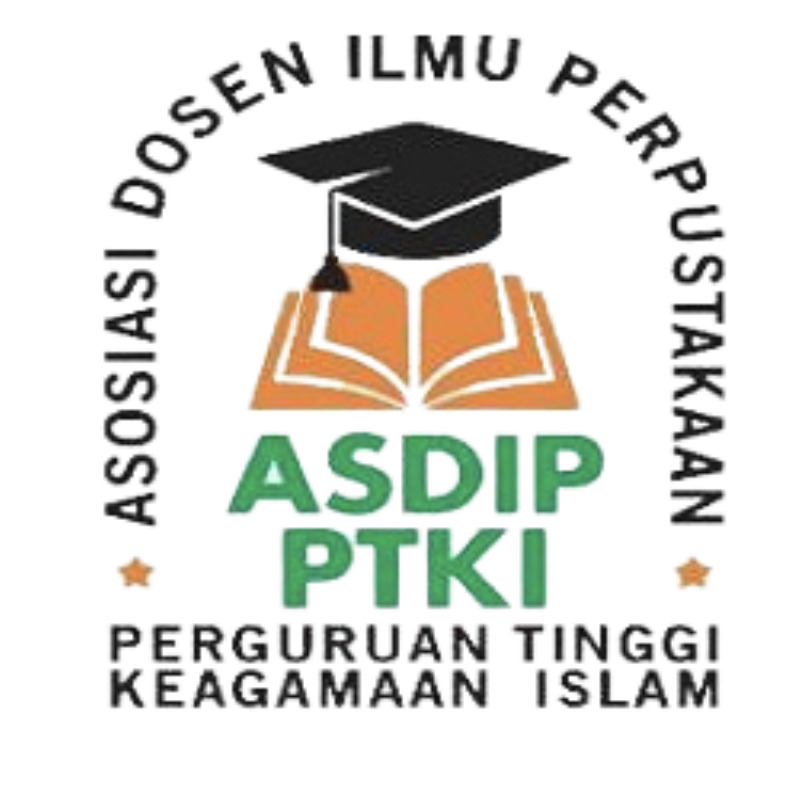Kebijakan Pengembangan Koleksi Perpustakaan Universitas Islam Negeri Raden Fatah Palembang
DOI:
https://doi.org/10.29240/tik.v4i2.1477Keywords:
Collections, College Libraries, Collection Development, Collection Development PoliciesAbstract
Collection is one of the requirements for the formation of a library in addition to library staff, facilities and infrastructure, a source of funding. Library collections are tailored to the needs of visitors, library types, and agency policies. The university library must have an adequate collection of both the number of titles and the number of copies. The collection is sufficient to support the implementation of education, research, and community service. In order for the development of a focused collection, a collection development policy is needed. This research uses a descriptive qualitative approach. This approach is used to describe the collection development that has been carried out by the library of UIN Raden Fatah Palembang along with the obstacles faced, as well as to collect data to make a written collection development policy. Data collection was carried out through observation, interviews and documentation. The findings in this study are that so far the UPT Library of UIN Raden Fatah has only carried out collection development activities by practice, but there is no collection development policy that will be used as a guide in carrying out collection development activities. This is so that the implementation of collection development activities is not well directed, because there are no guidelines in carrying out collection development activities.
Downloads
References
Association of College Reseaarch Library. (2018). Standards for Libraries in Higher Education. Retrieved from http://www.ala.org/acrl/standards/standardslibraries.
Almah, Hildawati. (2012). Optimalisasi Pengembangan Koleksi Perpustakaan Perguruan Tinggi. Jurnal Iqra, Volume 06(01), 19–28. Retrieved from http://oaji.net/articles/2015/1937-1429774556.pdf
Evans, G. ., & M.Z.S. (2005). Developing Library and Information Center Collection. United States of America: Libraries Unlimited.
Gunawan, A., Darmanto, & A.Lubis, N. R. (2016). Pengembangan Koleksi pada Perpustakaan Pusat Penelitian dan Pengembangan Perikanan. Jurnal Pari, Vol.2 No.1, 31–42. Retrieved from http://ejournal-balitbang.kkp.go.id
Indonesia. (2011). Standar Nasional Perpustakaan (SNP) 010. Jakarta : Perpustakaan Nasional
Indonesia. (2015). Kamus Besar Bahasa Indonesia. Jakarta: Gramedia Pustaka Utama.
Indonesia. (2017). Peraturan Kepala Perpustakaan Nasional Republik Indonesia Nomor 13 Tahun 2017 tentang Standar Nasional Perpustakaan. Jakarta: Perpustakaan Nasional
Iswanto, R. (2017). Kebijakan Pengembangan Koleksi dan Pemanfaatannya di Perpustakaan Perguruan Tinggi (Analisis Penerapan Kebijakan Pengembangan Koleksi Perpustakaan Utama Universitas Islam Negeri Syarif Hidayatullah Jakarta). Tik Ilmeu : Jurnal Ilmu Perpustakaan Dan Informasi, Vol.1 No.1. Retrieved from file:///C:/Users/youhe/Downloads/kdoc_o_00042_01.pdf
Johnson, P. (2009). Fundamentals of Collection Development and Management (Second Edi). Chicago: American Library Assosiation.
Lasa, H. (2009). Manajemen Perpustakaan. Yogyakarta: Gama Media.
Nasional, P. (2015). Pedoman Penyelenggaraan Perpustakaan Perguruan Tinggi. Jakar.
Saleh, A. R., & Komalasri, R. (2010). Saleh, Abdul Rahman. Jakarta: Universitas Terbuka.
Syukrinur. (2017). Eavaluasi Koleksi: Antara Ketersedian dan Keterpakaian Koleksi. Libria, Vol. 9 No.(1), 93–102. Retrieved from file:///C:/Users/User/Downloads/1690-3352-1-SM.pdf
Wahyuni, S., & Rahmah, E. (2012). Pengembangan Koleksi Perpustakaan di Perpustakaan Kopertis Wilayah X. Jurnal Ilmu Informasi Perpustakaan Dan Kearsipan, 1(September), 351–357. Retrieved from http://ejournal.unp.ac.id/index.php/iipk/article/view/1526
Downloads
Published
Issue
Section
Citation Check
License
Authors who publish with Tik Ilmeu : Jurnal Ilmu Perpustakaan dan Informasi agree to the following terms:
- Authors retain copyright and grant the journal right of first publication with the work simultaneously licensed under a Creative Commons Attribution-NonCommercial-ShareAlike 4.0 International License (CC BY-NC-SA 4.0) that allows others to share the work with an acknowledgment of the work's authorship and initial publication in this journal.
- Authors are able to enter into separate, additional contractual arrangements for the non-exclusive distribution of the journal's published version of the work (e.g., post it to an institutional repository or publish it in a book), with an acknowledgment of its initial publication in this journal.
- Authors are permitted and encouraged to post their work online (e.g., in institutional repositories or on their website) prior to and during the submission process, as it can lead to productive exchanges, as well as earlier and greater citation of published work (See The Effect of Open Access).







 This work is licensed under a
This work is licensed under a 